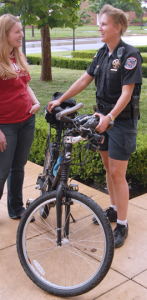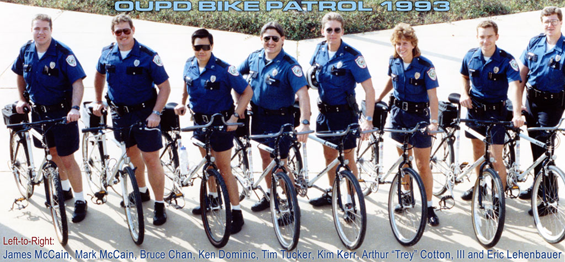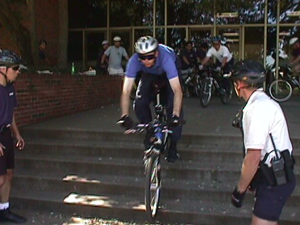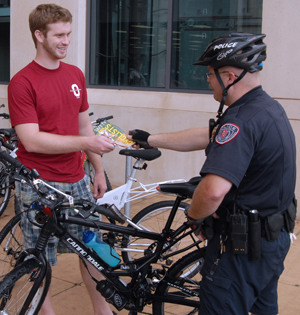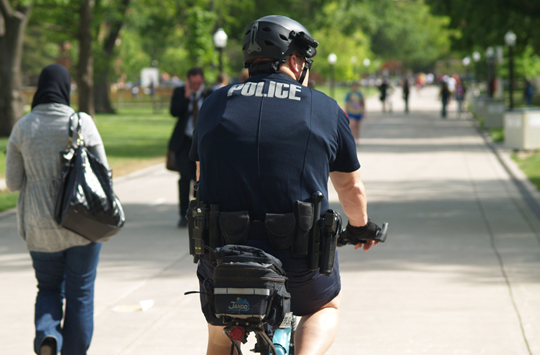The first “recalled” use of bicycles for campus patrol was in the mid-1980s. OUPD’s Administrative Sergeant, Duncan Burgess, began riding his own bike in civilian clothes on patrol to address bike theft and a series of incidents involving a male who was riding his bicycle past OU coeds and “grabbing” at them. Burgess was absolutely convinced that bike patrol was viable and desirable, and would often ride just to ensure that an officer was seen on a bike regularly. In large measure, he should be recognized for nurturing the idea until the department was able to implement it in an organized manner.
By the late 1980s, bicycle policing had been proven effective in several progressive jurisdictions (primarily on the west coast) and OUPD was eager to apply those methods in the campus setting, prompting resumption of experimentation using bikes on an ad hoc basis. At the time, the Norman campus was plagued with numerous car burglaries which frequently centered around the theft of vehicle “T-Tops”. The very first measured success of OUPD using officers on bikes was the drastic reduction of vehicle burglaries on campus.


